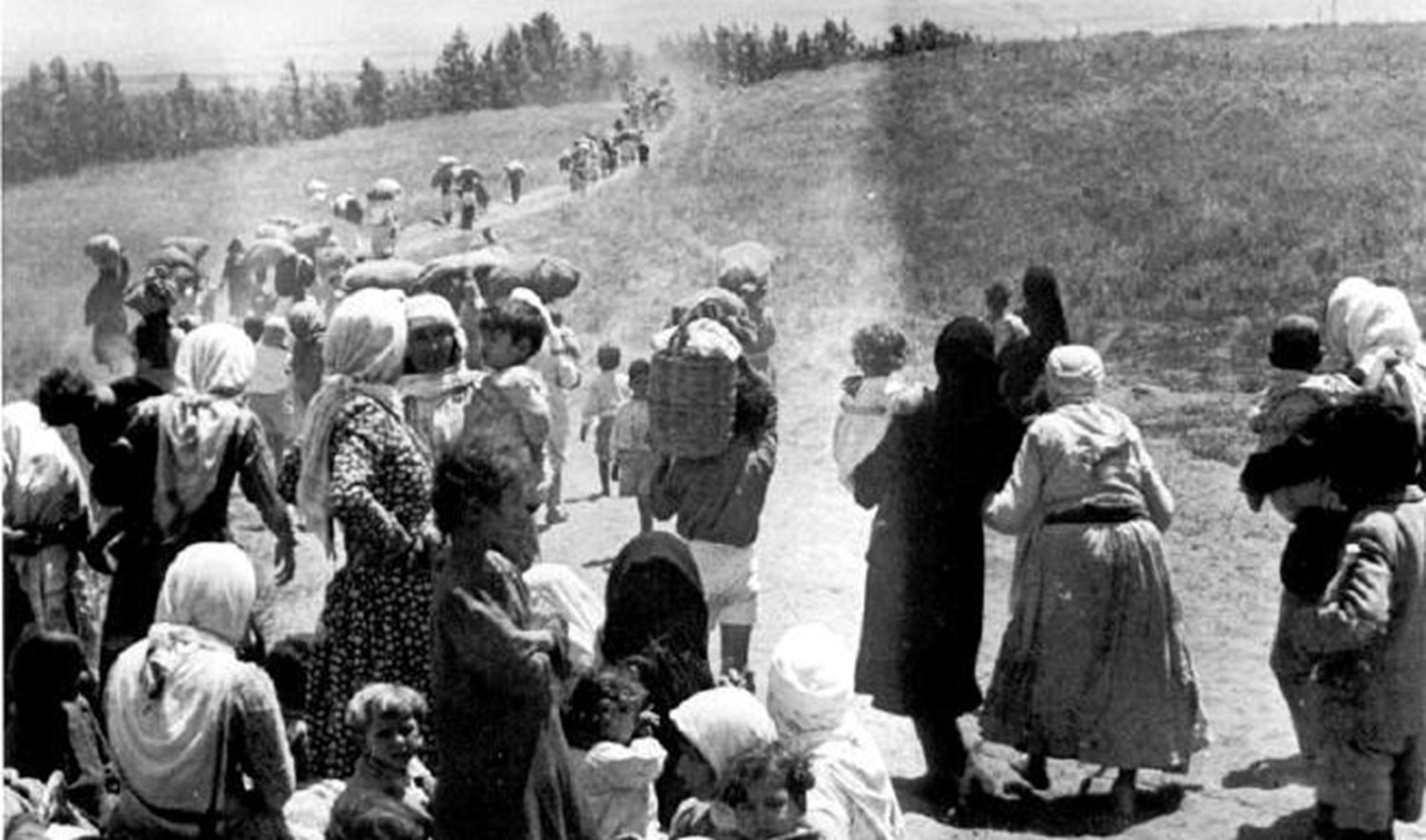RAMALLAH, October 13, 2010 (WAFA)- A recent opinion poll conducted by Near East Consulting (NEC) shows that 27% of Palestinians support direct negotiations with Israel under any circumstance, compared to 43% who support direct negotiations only on the condition that settlement activities are halted, while 30% oppose the direct negotiations under all circumstances.
The survey was carried out between the second and fifth of October on a random sample of 900 Palestinians over the age of 18 from both sexes, in the West Bank and the Gaza Strip, including East Jerusalem. The margin of errors is +/-3.4% and the confidence level is 95%.
Following the suspension of direct negotiations between the Palestinians and the Israelis after the resumption of Israel's settlement activity, the results show that the majority (90%) of the Palestinians believe that Israeli Prime Minister, Benjamin Netanyahu, is 'not serious' in reaching a peace agreement through negotiations, compared to only 10% who think that Netanyahu is serious. Still, 68% of the Palestinians support reaching a peace agreement with Israel, compared to 59% in July of this year. In this context, 62% called on Hamas to change its position towards the elimination of Israel.
The findings also reveal that 19% of the Palestinians expect a Palestinian state in the near future, 5% believe that this independent state will see the light within one year, 10% said that it will take 2-5 years, while 21% are of the opinion that the state will take more than 5 years for its creation, and 46% don’t expect an independent Palestinian state to ever materialize.
As for factional trust, the popularity of Fateh has increased to 50% compared to 44% in July 2010, so did the popularity of Hamas (from 7% to 9% during the same period) , while the percentage of those who do not trust any faction decreased from 45% in July 2010 to 37% nowadays.
The respondent were also asked about the faction closest to them politically, 55% said Fateh, 11% said Hamas, and 5% said another faction, while 29% insisted that there is no existing faction that represents their political views.
According to NEC’s previous surveys the level of support for Fateh may not necessarily translate into the ballot boxes as it appears. This is due to a number of reasons. First, as a pluralistic organization, Fateh, unlike Hamas, is perceived as an umbrella organization that promotes different views and ideologies. As such, means different things to different people. Second, the negative perception that people have about many of Fateh’s leaders will probably alienate a large percentage of voters from voting for the official Fateh candidates thus fragmenting the Fateh vote. Third, Fateh will gain support from the non-partisans who comprise more than one third of the population only if concrete progress is made on the Palestinian-Israeli front. Lack of progress will shift the support to Hamas especially as the majority of the non-aligned respondents seem to be ideologically more in tune with Hamas than with Fateh.
Still, 51% of the respondents prefer Fateh’s strategy compared to 9% that prefers the strategy of Hamas while 40% prefer neither. President Mahmoud Abbas kept his popularity as compared with Ismael Hanieh (52% versus 11% respectively), while 38% refused to answer the question.
On the other hand, the results highlight the remarkable progress on the level of support for Dr. Salam Fayyad’s government, when compared with that of Hanieh in Gaza, where 62% said that Fayyad's government is the legitimate government in the oPt, while 15% said Hanieh’s. Still, 24% believe that neither government if legitimate. This result probably testifies to the effective impact the Fayyad Government had on the Palestinians’ daily life.
In a question about how the Palestinians identify themselves, the results reveal that 61% identify themselves as 'Muslims first”, 20% as 'Palestinians first', and 15% as 'human being first', and 3% as 'Arabs first.'
According to the results, there is an improvement in the sense of security of the Palestinians towards themselves, their families and their properties, (56% feel secure compared with 44% feel insecure).
Still the proportion of anxiety is high for the majority of the Palestinians. Slightly more than 90% feel concerned about the situation in general. The main source of concern remained to be the economic condition of the household (39%), followed by the internal dispute (24%), and the Israeli occupation with 7% - noting that this option is not mentioned to the respondents- 18% attributed their concern to the absence of security, and 5% to family problems.
As for their psychological condition, 52% of the Palestinians are deemed as frustrated, versus 39% are not and 9% are regarded as on the line. The frustration rate is based on a set of five questions related to the Palestinians daily life. These questions are used in the past by many organizations to analyze the rate of depression of the population in areas of conflict, wars and occupations.
Al Jazeera Satellite station is the most trusted by the majority of the Palestinians, (44%); followed by 21% who trust Palestine TV, 15% trust Al-Arrabiyah, while 6% said that they don’t trust any of the TV stations. It is noted here that there is improvement regarding the trust of the Palestine TV, (from 15% in April to 21% now) and a significant drop in the level of trust in Al-Jazeera, despite the fact that they continue to be ranked number one.
As for the newspaper that the Palestinians trust more, Al-Quds newspaper occupied the first position (46%), followed by Al Ayyam newspaper (13%), while 14% expressed their lack of confidence in any newspaper.
The respondents were also asked about their assessment of some organizations and agencies on a scale from zero to ten, where zero means very negative and ten means very positive. UNRWA got 6 out of ten , 5 for the European Union, 2 for the Obama administration, the PLO , the Palestinian Authority , the Presidential Office and the Fayyad government got 6, while the Hamas government got only 3.
It is worth mentioning that Near East Consulting monitors the Palestinian public perceptions on political, social and economic issues on a monthly basis in addition to its various political, social, and economic studies that are carried out on behalf of local and international organizations.











